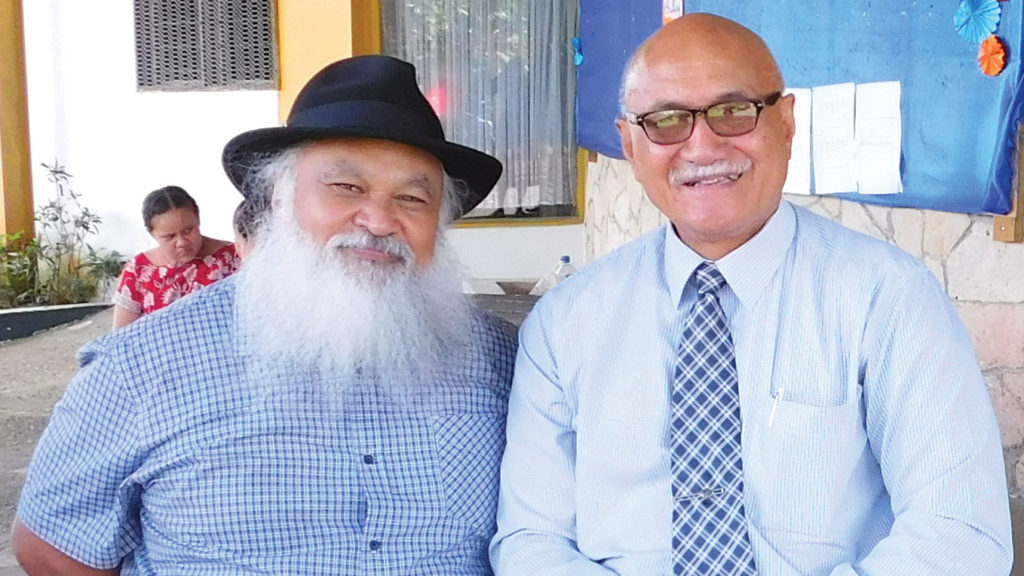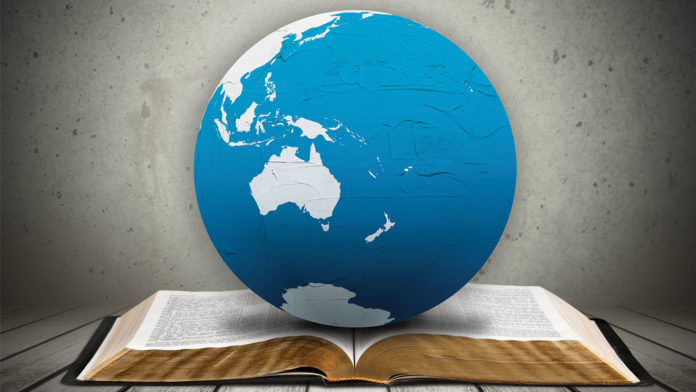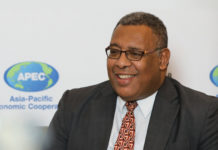A few weeks ago, I had the privilege of speaking with Fiji’s president, His Excellency Jioji Konrote. We met at Suvavou Seventh-day Adventist Church in Suva—he is a committed, practising Adventist. I asked him up front if Fiji is still a “Christian nation”—I was thinking sentimentally, of course, of the Fiji of my childhood. Back then, in the 1950s, the absolutes seemed secure—black-and-white morality in an unquestioned Christian context that defined everything. But, without pausing, Konrote flatly admitted, “I don’t know.” I admired his honesty as he proceeded to give an account of the ethnic and religious diversity of present-day Fiji. The nation’s multicultural character has made it difficult to use one simple descriptor, such as “Christian”.
Several decades back, it seemed easy enough to me, as a child: we lived as Christians in a Christian household in a Christian community. We were Adventists and others in our community included Anglicans, Methodists and Catholics in a British Pacific colony that would evolve over time into the nation of Fiji. Clear rules existed around most activities and lapses were tolerated so long as confession and repentance were resorted to as weekly, if not daily, rituals. No-one questioned the “Christian” adjective.
But a clear, single identity of any kind in these postmodern times is a problem. The president’s reply—“I don’t know”—is a symptom of the disappearance of certainty that now accompanies us even into the most remote Pacific communities. What is a “Christian” nation, or village, or custom, or principle anyway? For example, a Christian in my early years had clear beliefs about what marriage entailed. Today, marriage in some settings, even “Christian marriage”, includes the same-sex variety—affectionate intimacy, not gender difference, is considered to be the defining variable. When we change the defining variable of anything, what was certain yesterday becomes an open question today.

In 1963, facing the prospect of decolonisation, the Fijian chiefly leader, Ratu Kamisese Mara, convened a special Great Council of Chiefs meeting on the (now tourist) island of Wakaya. The meeting aimed to settle the status of indigenous Fijians in their own islands going forward toward independence from the United Kingdom. Ratu Mara and others involved recall that the meeting produced a communique for London and the Crown that became known as “The Wakaya Letter”. Among the aspirations underscoring the indigenous perspective, the letter outlined that “Fiji should be a Christian state” and that “no constitutional or administrative changes should take place that would deviate from that intention”.
Twenty-first century Fiji celebrates its 50th anniversary of independence on October 10, 2020 and, since 2013, has been constitutionally defined, not as a Christian state, but a secular state. How did it come to that? Well, for a start, no-one has ever satisfactorily defined exactly what a “Christian state” is.
In 1987–88, after conducting Fiji’s first (May) and second (September) coups, then-Major-general Sitiveni Rabuka, a lay-preaching Methodist soldier, allowed the introduction of “Sunday bans” to help hallow Christian Sunday observance through the nation. This experiment with enforced religious practice soon soured the population’s taste for patriotic piety and for any notion of a Christian state, as that was what the Sunday bans were seen to represent.
In the decades since those first coups, the Christian state dreamed of by the 1963 chiefs on Wakaya has been bandied about in media-led discussions and constitutional review submissions, but all that remains of it is a cherished hope in the hearts of indigenous nationalists. Most of Fiji is resigned to the fact that whatever a “secular state” amounts to, it will do for now. Despite lobbying for Fiji to be proclaimed a Christian state in constitutional review submissions in 1995 and 2012, these suggestions have been batted away as impractical and even prejudicial to the national interest.
It is fair to say that public lobbying for an officially Christian state has been displaced by a private longing that Fiji can be minimally a “Christian nation” in some sense of the word—that Christians should be more Christian in their ways; that the government should be more Christian and less corrupt; that the symbols of the nation should reflect Christian values and many other vaguely defined aspirations. And that, somehow, God will be glorified and the people as a nation will be better than they are now.
Just what being “better” would look like is also contested. Throughout the Pacific, Christianity is increasingly preached as a passport to prosperity. New Methodists, as they call themselves in Fiji, often link their brand of the Christian gospel with the ambition of increased personal wealth—indeed for some it is a mandatory sign of divine blessing. Poverty—regardless of its sociological, cultural and political root causes—is a sign of heaven’s curse. Social justice concerns and human rights issues are negatively viewed as dirty secular politics—Christians and churches who engage with human suffering in these ways are accused of transgressing their vocation.
But the realities of poverty, unemployment, corruption, crime, violence, ethnic tension and land rights struggles are felt daily by Pacific island peoples at the margins of a globalised world that is exacerbating the distinctions between rich and poor, elites and left-outs, haves and have-nots, and those above the water-line and those whose lifestyles will soon be drowning in their front yards.
Political and personal templates that seek to Christianise anything—any institution, people, ethos, culture, economy, nation or state; believing that just attaching the “Christian” tag will magically improve a population’s lot—are false christs. Jesus alone Christianises us and, through us, His creation. It is a humbling transformation that comes one by one, person by person, not by mass assimilation or constitutional law.
As we help spread the good news in this regard, we must confess that our technologies are not the Holy Spirit; our techniques are not sacred. In uprooting secular and corrupt traditions, we must, as Christians, be wary of imposing one-size-fits-all politics, policies or programs that are blind and deaf to multicultural variation and advancing light. The kingdom of God, Jesus said, is within us (Luke 17:21). Only then can it shine out of us. If a Christian nation is to exist, it has to be found in our hearts before it can be realised in our politics. We must be Christian individuals where we are. And only then, as salt or yeast works its way through the whole lump of dough, can we become Christian in any collective sense.
Fiji-born Robert Wolfgramm is a retired Australian academic with a long interest and occasional engagement in Pacific politics. His current concern is West Papua. A list of further reading on the topics raised here is available at the online version of this article <pacificsigns.info>.






